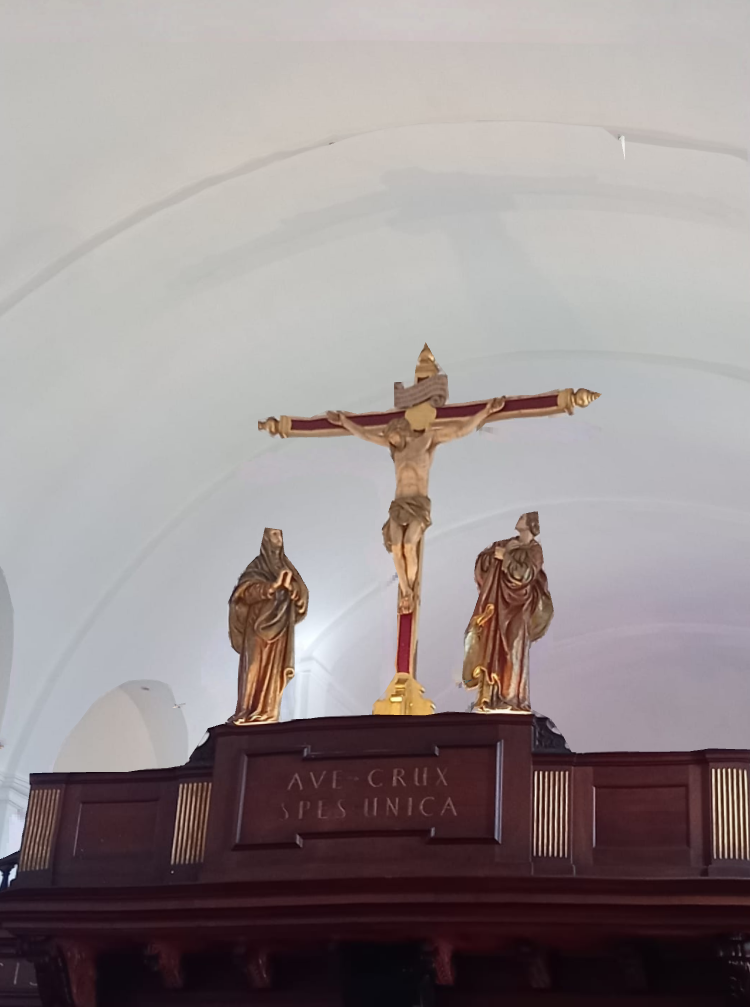Do not be conformed to this world, but be transformed by the renewal of your mind, that by testing you may discern what is the will of God, what is good and acceptable and perfect.
Romans 12:2
Dear St John’s College Community
Inasmuch as our post-Covid world has motivated a variety of initiatives to recover from our losses, we also know that the residue of trauma will linger for some years to come. Some indicators of this languishing manifest in despair, exhaustion, frayed tempers, shortened concentration spans, disturbed sleep, dislocated relationships, and a host of other symptoms that collectively deplete our well-being. Added to this malaise is the rapid acceleration of change and transformation that we are called to integrate. In our case, transformation implies the transcendence of old divisions in the quest for a more just and humane society. Necessary as this may be, we also know that change is seldom easy. It is not uncommon for change to ‘feel’ like loss. The process of change as we move away from the secure and familiar to a ‘new’ that is not yet clear in our minds can leave us feeling uncertain and afraid. For some, this transitional insecurity is perceived as a threat, and it can manifest in disproportionate defensiveness, and even aggression. Alan Cohen, the author of the award-winning A Deep Breath of Life, saliently illustrates that; “Scared and sacred are spelled with the same letters. Awful proceeds from the same root word as awesome. Terrify and terrific. Every negative experience holds the seed of transformation.” Well-considered transformation, as it seeks to equalise the imbalances and correct the injustices of the past, is always good – even when it’s uncomfortable.
This kind of transformation challenges us to consider the difference between custodianship and stewardship. It, therefore, expects us to courageously re-examine our inherited mindsets and values. Generally, custodianship refers to ‘safekeeping’ that seeks to defend an asset, idea, or person from changes that may be perceived as a threat to the status quo, but it can easily trip into possessiveness, ideological protectionism, or stubborn territorialism. It is also often about power and control. When we are ‘in custody’, we usually think of incarceration – the loss of freedom. Stewardship, on the other hand, is about the transfer of value for the greater good – particularly in increasingly diversified contexts such as ours. Custodianship tends to ‘close in’ whereas stewardship intends to ‘open up’. Stewardship, therefore, seeks to give of itself to nurture, grow, and love those who are given into your care. Stewardship is, therefore, generous and courageous in its inclusive aspirations, whereas custodianship too often protects the past at the expense of a more wholesome future. No doubt, the magnificent heritage of St John’s College must be respectfully preserved, but not those parts which embraced exclusion, prejudice, and discrimination. According to some, the identity and ethos of St John’s College is at risk, and its custodians want us to ‘go back’ to ‘reclaim’ the sentiments of our past, whilst others, the good stewards, understand that the Christian values we claim, prompt us to a deeper love for all our students in their increasing variety - without exclusion, prejudice, or discrimination.
When we transform to include all cultures and religions, all genders and identities, and all classes (Galatians 3:28, Colossians 3:11); when we seek to live in harmony with those who are different (1 Corinthians 12:12-27, Revelation 7:9), or raise those previously estranged and excluded (Romans 12:15-18, James 2:1-4); when we are hospitable to the interests and needs of those not of our heritage (Philippians 2:3-4, Hebrews 13:2); when we welcome all children with open arms (Mark 10:14-15); when we refuse to judge and condemn (Romans 14:1-6, 13, 17); when we consider and respect the views of others and meet them with compassion (Matthew 5:1-12), we are not being ‘woke’ or promoting ‘school capture’, we are quoting the teachings of Jesus.
1 John 4:7-8 makes the instruction clear: “Beloved, let us love one another, for love is from God, and whoever loves has been born of God and knows God. Anyone who does not love does not know God, because God is love.” The most frequent retort from ideological ‘custodians’ is that we don’t have to agree with those we love, which is correct, but I have noticed too often that their disagreement conceals implicit judgement, and sometimes subtle condemnation.
Bishop Steve shares similar sentiments in his recent reflection on the 2022 Lambeth Conference. Once every ten years, Anglican Bishops from around the world meet in Canterbury for worship, fellowship, and learning. The Archbishop of Canterbury, the Most Revd Justin Welby, hosts the Conference as the ceremonial head of the worldwide Anglican Communion. Bishop Steve enjoyed the worship most of all because it illustrated; “… a united fellowship in a gathering of people who are very different in so many ways.” When there is disagreement, Bishop Steve quotes the Lambeth Conference Calls (Human Dignity 1.3) and reminds us that; “Pentecost … shows how diversity is a good gift from God when, in the unifying power of the Holy Spirit, it is used in God’s service for the good of one another.” This, he continues; “… gives all human beings a dignity that cannot be taken away. Whenever we face another, we see a reflection of God’s infinite love and glory… The wonderful diversity of God’s creation is echoed in the diversity of human beings. Every human being is a unique and deep mystery of inestimable value and dignity.” Bishop Steve concludes with a challenge and calls on us all to; “… embrace our diversity and with great energy work towards the realisation of human dignity.”
With God’s blessing to you all.
The Revd Dr Jeremy J Jacobs
Bishop Steve’s full report on the Lambeth Conference can be found here

